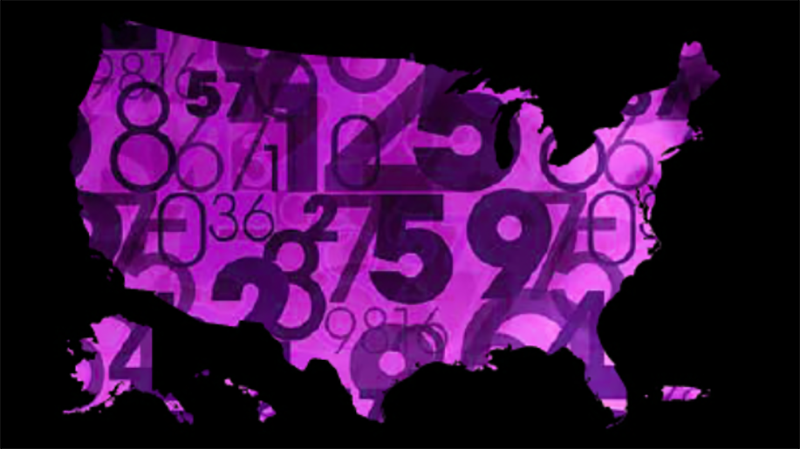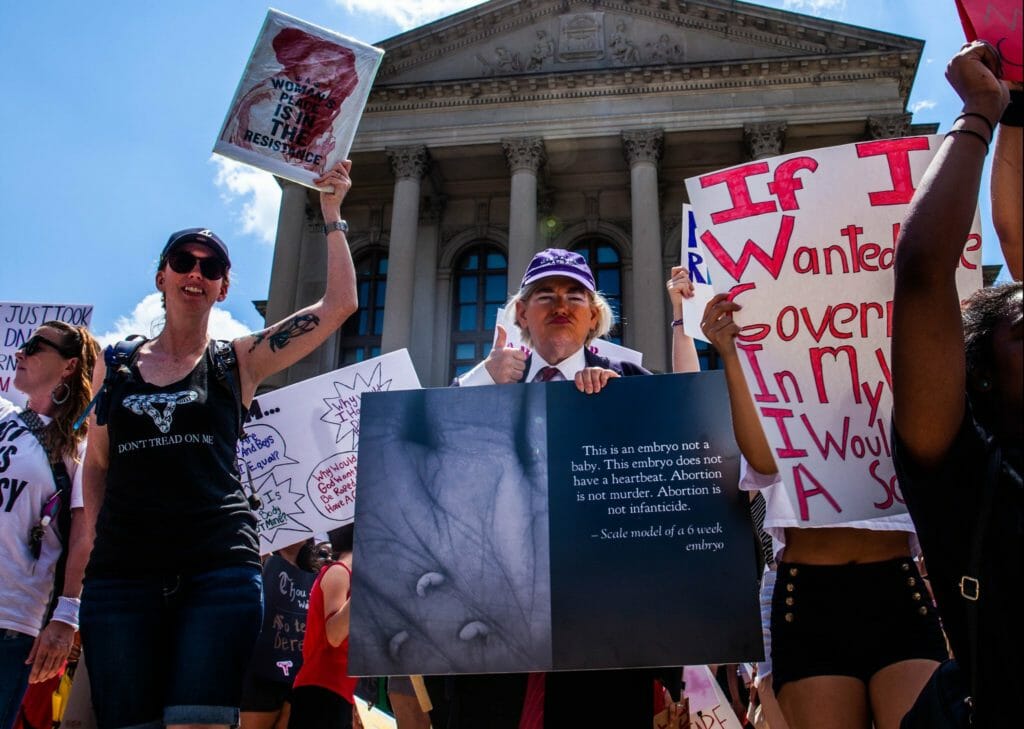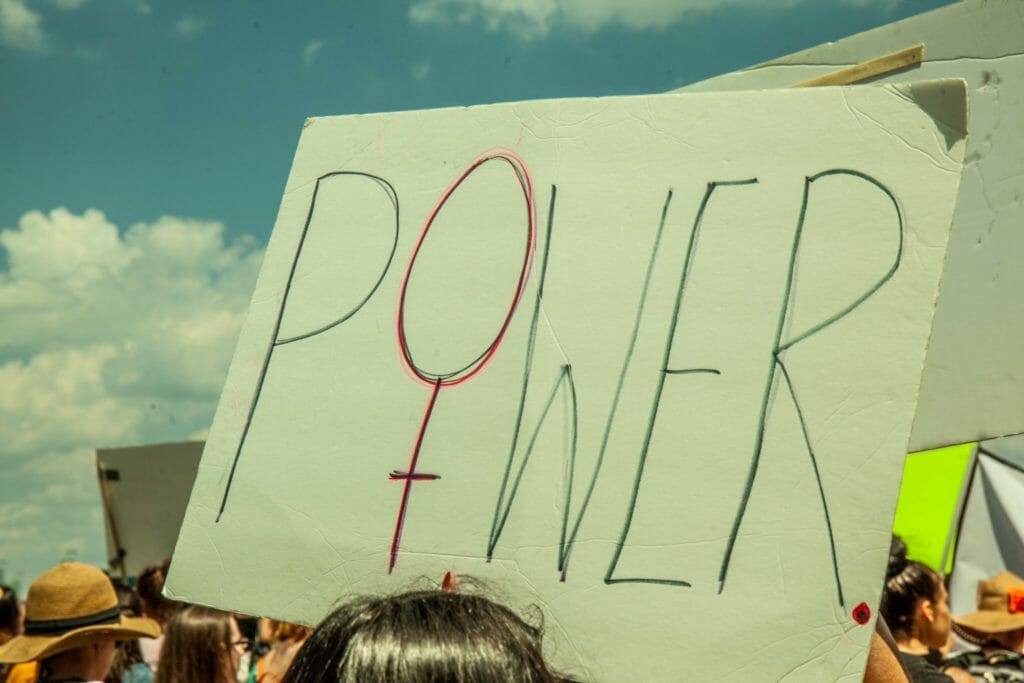Originally published digitally on March 22, 2020, in the Mainline’s fourth issue, “The Boundary Issue”. It has been revised to reflect changes that have occurred throughout the year.
Source: The U.S. Census Bureau, 2020.
Note from the Author: Back in early March when I wrote the following article about the U.S. census, I was trying to make a somewhat boring topic as entertaining as I could. Today, though, I probably wouldn’t approach it with the same levity. As we’re all aware, COVID-19 and the high-profile murders of Black people by police have since altered our political, economic, and personal landscapes in ways that have yet to see their full reckoning. Ultimately, however, both the virus and recent police brutality have only further exposed the violent racism and cynical greed that have been at the heart of the American promise all along. Of course, you likely already knew this. But what you may not know is the crucial role that the census plays in the very possibility of a genuinely equitable democracy. Sure, the census is just one tool in our kit — but it’s an important one, and the stakes are high.
I’ve left the article largely as it was originally published back in March, except where updated information was necessary. Most importantly, the last day to complete the census is now September 30, 2020.
IN A WORLD where the mega-rich buy their way into politics, where corporate dollars are protected as “free speech,” where the Electoral College warps and demeans the value of each American voter — what dedicated, intrepid coalition of superheroes will dare to fight for our democracy?
Enter THE ENUMERATORS.
(aka the United States Census Bureau)
We’re looking down the barrel of another four years with Trump, and it’s terrifying: from future federal court appointments to adequate funding for the CDC, there’s a lot at stake in the 2020 presidential election. And while Joe Biden and the Democratic Party may offer little hope for the kind of systemic change we need, there’s been another less visible but massive effort unfolding to strengthen our fragile democracy: it’s the U.S. census, and it’s sexier than you think.
Did you know that, technically, all adults residing in the U.S. are required by law to participate in the census?
What? You don’t give a damn about this law? Me either, tbh. However, I do give a damn about ensuring that each of us has fair representation and an equal voice; and getting an honest, accurate count of the folks who live here is fundamental to this process.
Admittedly, prior to this year, I had never filled out a census survey. In the past, I chucked them right into the trash with the rest of the junk mail. I think that, looking back on it, I was reluctant to help a government that I don’t even trust. And frankly, I didn’t understand the point of the whole thing.
That was before I sat down with the staff of Fair Count.
Fair Count is the nonprofit, nonpartisan organization created by Stacey Abrams to “achieve a fair and accurate count of all people in Georgia and the nation in the 2020 Census.” Back in December, the Mainline team was able to meet with Fair Count’s CEO Rebecca DeHart and Vice President Dr. Jeanine Abrams McLean at their Atlanta headquarters. We learned a lot.
First, the decennial census — meaning that it occurs every 10 years — is actually mandated by the U.S. Constitution. Each decade since 1790, the government has been obliged to count all people living in the U.S. As the nation’s population has grown from just under 4 million in 1790 to well over 300 million today, this task has become significantly more complex. The enumerators (and yes, that’s actually what census takers are called) really have their work cut out for them.
I’m feeling cross-eyed just thinking about it. Why even bother with the gargantuan undertaking of counting each human in the nation?
Well, hold onto your calculators, because the figures gathered in the U.S. census play a critical role in our democracy. In a geeky but well-earned flex on their website, the Census Bureau makes sure we know just how important their work is to our nation, reminding us that these statistics provide “the basis for reapportioning congressional seats, redistricting, and distributing more than $675 billion in federal funds annually to support states, counties and communities’ vital programs — impacting housing, education, transportation, employment, health care and public policy.” These numbers dictate how many congressional and Electoral College seats we get; they affect how state political districts are drawn; they help determine the quality of our schools, our roads, and important services like Medicare and housing assistance.
What’s more, not only does the census impact all these vital components of our lives and communities, but it does so for a full 10 years. If you’re doing the math, that’s around 7 trillion dollars up for grabs over the next decade. To bring this astronomical figure back down to earth, this means that for those of us who live in Georgia, each uncounted person will result in a loss of an estimated $2,300 per year.
Alas, a lot of citizens simply do not fill out the form. According to the Census Bureau itself, “Response rates for Census Bureau surveys, and for surveys and censuses in general, have declined as citizens are overloaded with requests for information and become increasingly concerned about sharing information.”
It’s me. I’m citizens.
But that was the old me, worried about some half-formed conception of my “privacy”. The new me realizes that I’m not Ted Kaczynski over here, living off the grid in the Montana wilds, writing deranged manifestos designed to usher the collapse of the industrial-technological complex. Nope, I’m sitting in Atlanta, typing on my MacBook, eating leftover curry I ordered from UberEats, and trying to not check Instagram, which is currently listening to my conversations and cooking up targeted ads for sweatpants and mint Kit Kats. And, like, suddenly I’m self-righteous about the government knowing my address? Spoiler alert: they already do, and they know yours too. So let’s just fill out the form so that children in our district can have improved access to a Head Start Program.
The reality is that the census is one of the few truly democratic institutions in this country. It aims to count each of us, regardless of age, race, citizenship status, or political party. Unfortunately, this does not always work as planned: some communities are more difficult to assess than others, which leads to these populations being undercounted — and consequently, underserved and underrepresented. The Census Bureau designates these groups as “Hard to Count” or HTC populations.
As Fair Count explains it, HTC populations are undercounted “because they may be hard to locate, hard to contact, hard to persuade or hard to interview.” They go on to clarify that the populations who tend to be most affected are “immigrants, people of color, small children, renters, low-income people, undocumented persons or people who move around a lot.” This past December, the Valdosta Daily Times reported that the U.S. Census Bureau estimates that over 1.5 million Black and Hispanic residents were missed by the 2010 census; white homeowners, on the other hand, were overcounted.
Such disparities ultimately result in the misallocation of federal funds and diminished political power for HTC communities, which are disproportionately communities of color. On top of this, inaccuracies in census data are vulnerable to exploitation by those seeking to consolidate power through map manipulation. The late Republican strategist Thomas Hofeller, for example, relied on census data to gerrymander the shit out of North Carolina, nipping and tucking and math-ing and redistricting until the Democratic vote was all but neutralized. You can read more about this chump in Elliot Fullerton’s op-ed, “Sins of the Father,” but suffice it to say that Hofeller fully recognized the opportunities that arise when certain demographics go uncounted. Essentially, populations rendered invisible on a map pose less of an obstacle to partisan (read racial) gerrymandering. Hofeller even advocated for adding a citizenship question to the census because, as he put it in notes uncovered after his death, asking about citizenship would be “advantageous to Republicans and Non-Hispanic Whites.
And guess what! The Republicans actually tried to enact this scheme, with the Trump administration claiming that a citizenship question would somehow help protect minority votes by enforcing the Voting Rights Act of 1965. Luckily, the Supreme Court saw through this baloney justification and voted to block the question from appearing on the census.
Once more for the folks in the back: there is NO citizenship question on the 2020 census. In fact, according to the Census Bureau’s website, “Federal law protects your data responses. Your answers can only be used to produce statistics. By law, we cannot share your information with immigration enforcement agencies, law enforcement agencies, or allow it to be used to determine your eligibility for government benefits.” Nonetheless, the mere threat of this question has already done some damage. Like the folks at Fair Count told us, “You can’t unring the bell.” For those undocumented residents who fear the dirty and shameful tactics of ICE, just the specter of immigration surveillance may be enough to dissuade them from participating in the census. And who can blame them?
To better serve HTC populations and assuage concerns about privacy and citizenship, the U.S. Census Bureau has teamed up with community partners across the nation. In Georgia, for instance, Fair Count and the African Methodist Episcopal (AME) Church are working together with the Bureau to mobilize outreach and education programs in HTC sections of the state. Additionally, Fair Count created Black Men Count, an effort to increase census participation among Black men, who are one of the most historically undercounted demographics (remember that whole Three-Fifths Compromise thing? Hell, get a load of “prison gerrymandering.” It’s fucking gross). And since 2020 is the first census to be online, Fair Count’s Technology Department is installing internet connections in centrally located places, such as barbershops and community centers, in areas that have limited or no internet access.
However, like nearly everything else, census data collection became increasingly complicated after the pandemic began, since in-person outreach and follow-up are significantly more difficult to conduct under the constraints of coronavirus safety measures. And on top of those challenges, Trump’s attempts to undermine accurate tallies of some populations (namely, those hard-to-count populations who are unlikely to vote for him) have been relentless. As Stacy Abrams wrote in response to the President’s July 21 executive memorandum that once again saught to remove undocumented persons from the census headcount: “From the citizenship question that was struck down by the Supreme Court last year to intentional underfunding, to new hyper-partisan appointees at the Census Bureau, a non-partisan federal agency, it is clear that Donald Trump and his cronies will stop at nothing to erase certain communities from the future of America.”
Then, just a couple of weeks after Trump’s memorandum, the Census Bureau suddenly announced that it was reducing the time left to finish the headcount by a month, moving the deadline up to September 30, 2020. This puts our heroes, the Enumerators, in quite a pickle since, as four former directors of the Census Bureau said in a joint statement, decreasing the time to complete the census would “result in seriously incomplete enumerations in many areas across our country.”
The new September 30 deadline also means that if you personally haven’t responded to the census yet, you only have a few weeks remaining to do so.
Luckily, completing the census is quick and easy. The directions are right here, and you can do it online, by phone, or by mail. If you’ve lost your Census ID (this was on the mailings you should have received earlier in the year), don’t sweat it — you can still be counted. Simply go to my2020census.gov and select the link that says, If you do not have a Census ID, click here.
If you take anything away from this article, let it be this: the reason that Donald Trump is hellbent on sabotaging the 2020 census is because he knows just how important these numbers are to real democracy. So please, don’t drop the ball on this one. Get counted and get the word out — so that your community can get the funds and representation it deserves.




